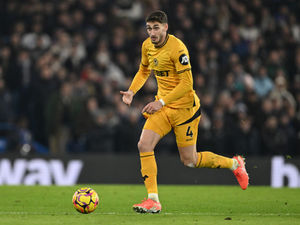Wolves Europa League permutations explained
Wolves fans are dreaming of a potential tour of the continent in the Europa League next season in what would be the club's first European campaign since 1980.
And given how Nuno Espirito Santo's side have performed this campaign, those hopes could well become a reality.
But qualifying for the competition is not quite as straightforward as you may think.
Here, Joe Edwards goes over all of the variables.
Option 1: Win the FA Cup
Seven English sides can play across the Champions League and Europa League.
And rules state that in 'normal circumstances' three teams will qualify for the Europa League – the one that finishes fifth in the Premier League, the FA Cup winners and the EFL Cup winners.
So beating Watford at Wembley on Sunday, April 7 and then either Manchester City or Brighton in the final would put things beyond any reasonable doubt.
The FA Cup winners are also entered into the group stage proper, which usually begins in September and consists of six games in a four-team group (playing each other twice, with the top two going to the knockout stages), so fans would not have to worry about a potential qualifying tie clashing with Wolves' pre-season trip to China for the Premier League Asia Trophy.
This would be the easy way, but it is not the only way!
Option 2: Finish seventh (and Man City win the FA Cup)
Wolves would be at the mercy of Manchester City if they don’t win the FA Cup, but finish seventh in the Premier League.
City have already won the EFL Cup and that place goes to the team finishing sixth, currently Chelsea. Easy.
If a top-six team also wins the FA Cup – and City are the only side who can do that – then, again, an extra place goes to the Premier League standings. In this case that would be the team in seventh – currently Wolves.
In this scenario seventh-placed Wolves would be in the Europa League second-qualifying round in July and would need to win three two-legged ties to get to the group stages.
This is the route Burnley had to take this season after finishing seventh. The Clarets had to play six games between July 26 and August 30, but in the end were knocked out by Olympiakos at the final hurdle.
The second-qualifying round for next season's competition starts on July 26, with the draw made on June 19.
Simple so far, right?
A spanner in the works would be if a team from outside the big guns other than Wolves won the FA Cup, i.e. Watford or Brighton.
If that happens, Watford or Brighton would get the third Europa slot and finishing seventh would count for nothing.
So Wolves, the message is simple: win the FA Cup and leave nothing to chance!
Debunking a couple of myths
'But if Wolves get to the FA Cup final, even if they don't win it, they'll get into the Europa League as runners-up, won't they?'
In the past, yes. But not now.
In 2013/14, FA Cup runners-up Hull City, despite finishing 16th in the Premier League, got a Europa League qualifying spot since Arsenal winners qualified for the Champions League through finishing fourth in the league.
Rules on that have since changed though, with the highest-ranked league side not already qualified for Europe getting the nod instead.
And if teams outside the top six win the Champions League and Europa League, the seventh-placed side will not be affected.
Also, following a UEFA Executive Committee decision in December 2014, as of the 2015/16 season, Fair Play no longer earns clubs a route into the Europa League.





